Cover

Philosophy; Religion;
General Philosophy
| title | : |
| author | : |
| publisher | : |
| isbn10 | asin | : |
| print isbn13 | : |
| ebook isbn13 | : |
| language | : |
| subject |
| publication date | : |
| lcc | : |
| ddc | : |
| subject | : |
Page i
Philosophy: Key Texts
Page ii
Also by Julian Baggini
PHILOSOPHY: Key Themes
THE PHILOSOPHER'S TOOLKIT ( with Peter S. Fosl )
NEW BRITISH PHILOSOPHY: The Interviews ( co-editor with Jeremy Stangroom )
Page iii
Philosophy: Key Texts
Julian Baggini

Page iv

Julian Baggini 2002
All rights reserved. No reproduction, copy or transmission of this
publication may be made without written permission.
No paragraph of this publication may be reproduced, copied or transmitted
save with written permission or in accordance with the provisions of the
Copyright, Designs and Patents Act 1988, or under the terms of any licence
permitting limited copying issued by the Copyright Licensing Agency, 90
Tottenham Court Road, London W1T 4LP.
Any person who does any unauthorised act in relation to this publication
may be liable to criminal prosecution and civil claims for damages.
The author has asserted his right to be identified as
the author of this work in accordance with the Copyright, Designs and
Patents Act 1988.
First published 2002 by
PALGRAVE MACMILLAN
Houndmills, Basingstoke, Hampshire RG21 6XS and
175 Fifth Avenue, New York, N.Y. 10010
Companies and representatives throughout the world
PALGRAVE MACMILLAN is the global academic imprint of the Palgrave
Macmillan division of St. Martin's Press, LLC and of Palgrave Macmillan Ltd.
Macmillan is a registered trademark in the United States, United Kingdom
and other countries. Palgrave is a registered trademark in the European
Union and other countries.
ISBN 0333964845 hardcover
ISBN 0333964853 paperback
This book is printed on paper suitable for recycling and made from fully
managed and sustained forest sources.
A catalogue record for this book is available from the British Library.
Library of Congress Cataloging-in-Publication Data
Baggini, Julian.
Philosophy: key texts / Julian Baggini.
p. cm.
Includes bibliographical references.
ISBN 0333964845 ISBN 0333964853 (pbk.)
1. Philosophy. I. Title.
B72 .B33 2002
100dc21
2002025844

Printed and bound in China
Page v
For Beryl and Lino
Page vi
Page vii
Contents
Preface xi Acknowledgements xii Introduction 1Styles of reading 2Arguments 3Assessing premises 5Inferences 6The archaeology of arguments 7Arguments within arguments 8Back to style 9The principle of charity 9Five key texts 10 1 Aristotle: The Nicomachean Ethics ( c .334323 BCE ) 11Background 11The text 12The proper method of philosophy 12Teleology 13The Good for human life 15Happiness 18Moral virtue 20The doctrine of the mean 22The role of pleasure 23Choice, freedom and responsibility 26Five routes to truth 28Conclusion 31
Page viii
2 Ren Descartes: Meditations on First Philosophy (1641) 35Background 35The text 36First meditation 37Problems 39Second meditation 41Problems 42The piece of wax 44Third meditation 45The existence of God 46Fourth meditation 49Fifth meditation 51Problems 52Sixth meditation 55Problems 56Outstanding problems 56Conclusion 57 3 David Hume: An Enquiry concerning Human Understanding (1748) 61Background 61The text 61I Of the different species of philosophy 62II Of the origin of ideas 64III Of the association of ideas 66IV Sceptical doubts concerning the operations of the understanding 66V Sceptical solution of these doubts 68VI Of probability 70VII Of the idea of necessary connexion 71VIII Of liberty and necessity 73IX Of the reason of animals 75X Of miracles 76XI Of a particular providence and of a future state 78XII Of the academical or sceptical philosophy 79
Page ix
4 Bertrand Russell: The Problems of Philosophy (1912) 85Background 85The text 861 Appearance and reality 862 The existence of matter 883 The nature of matter 904 Idealism 915 Acquaintance and description 926 Induction 947 Knowledge of general principles 968 How is a priori knowledge possible? 989 The world of universals 9910 Our knowledge of universals 10111 On intuitive knowledge 10412 Truth and falsehood 10513 Knowledge, error and probable opinion 10714 The limits of philosophical knowledge 10915 The value of philosophy 1115 Jean-Paul Sartre: Existentialism and Humanism (1947) 115Background 115The text 116The attack on existentialism 117Humanism 117Existentialism 118Subjectivity 119Anguish 120Abandonment 122Despair 125The cogito 126The human condition 127Does it matter what you do? 128Can you judge others? 129A case of give and take 130
Page x
Humanism again 130Conclusion 131 Glossary 134 Further Reading 136 Index 137
Page xi
Preface
This book is designed to help the reader approach five key works of Western philosophy. It is not a substitute for reading the books themselves, but it will act as a guide for those thinking about or preparing to read or study the books for the first time.
The introduction contains some advice on how to read and make sense of original philosophical texts. Reading philosophy is not like reading a novel and the advice given here should make your encounters with such texts more rewarding.
Each chapter comprises an introduction which sets out the context of the book and its background, a systematic commentary on the text, a summary, a glossary of key terms and suggestions for further reading.
The commentaries combine two main features. First, they summarise and explain the main arguments of each text, clarifying and distilling their core. Second, the commentaries also contain critical points, questioning the validity or soundness of arguments, or bringing out unclarity or ambiguity in the text. The main purpose of this is not to provide an exhaustive catalogue of criticisms which could be made of the text, but to highlight potential weaknesses and to encourage the reader to question the claims being made in the texts for themselves.
There is also a glossary of key philosophical words at the end of the book, along with suggestions for further reading in philosophy.
Page xii
Acknowledgements
Thanks to Terka Acton, Penny Simmons and the anonymous reader at the publishers who helped make this book possible and then better than it would otherwise have been. Thanks also are due to my students whose feedback on the teaching materials that formed the bases of this book encouraged me to develop them further.
Next page

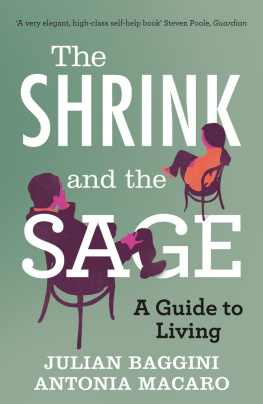

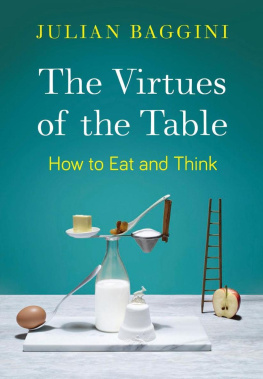
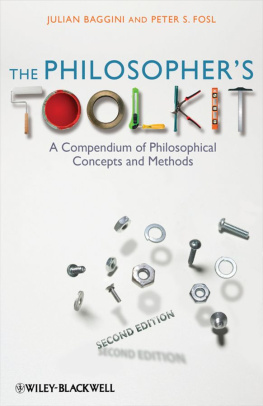
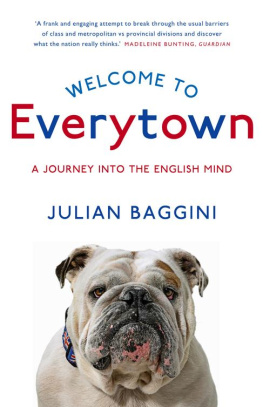
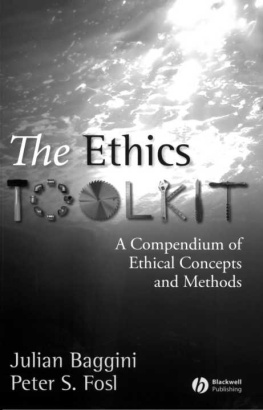
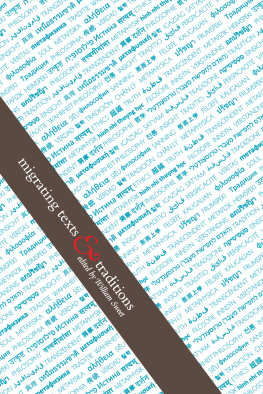
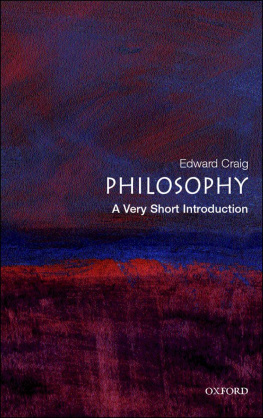
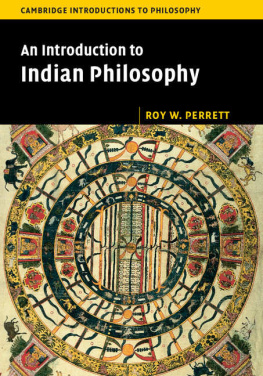
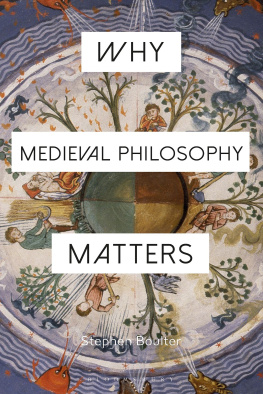

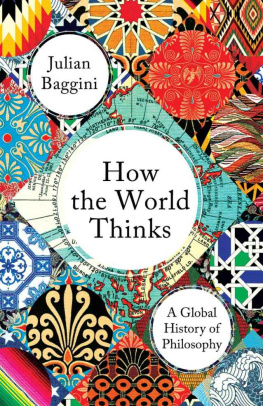
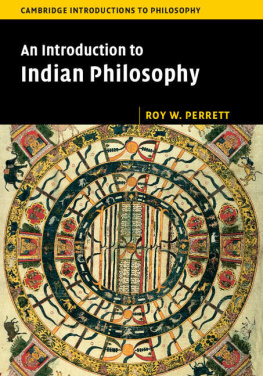
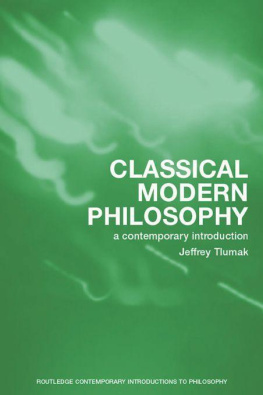
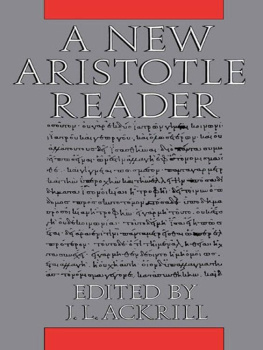
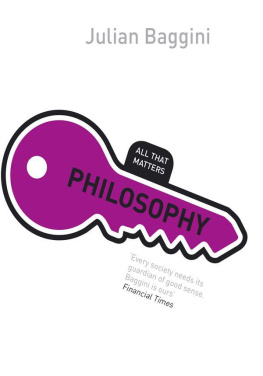


 Julian Baggini 2002
Julian Baggini 2002 